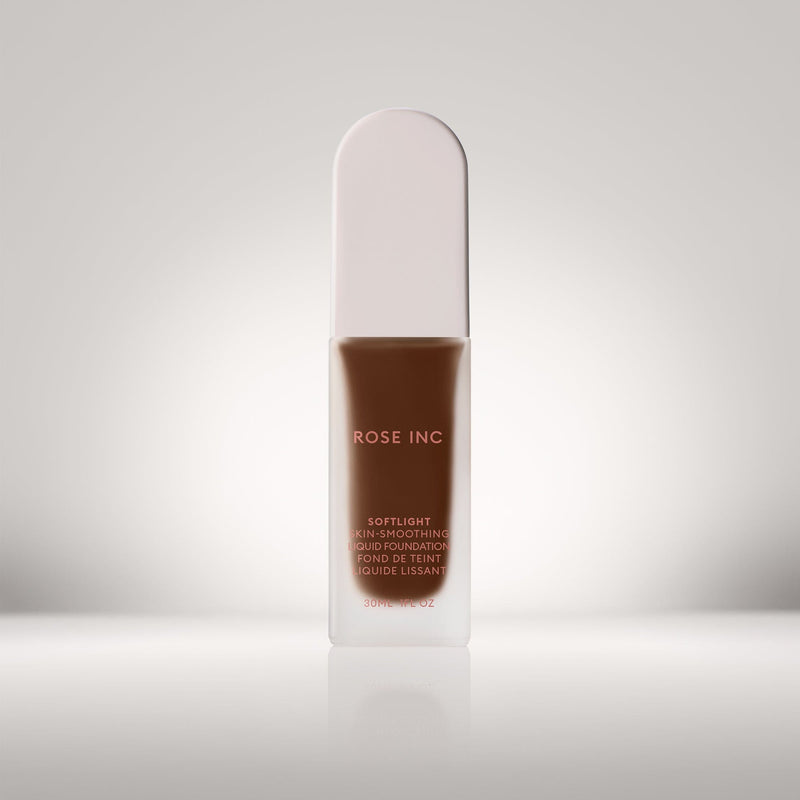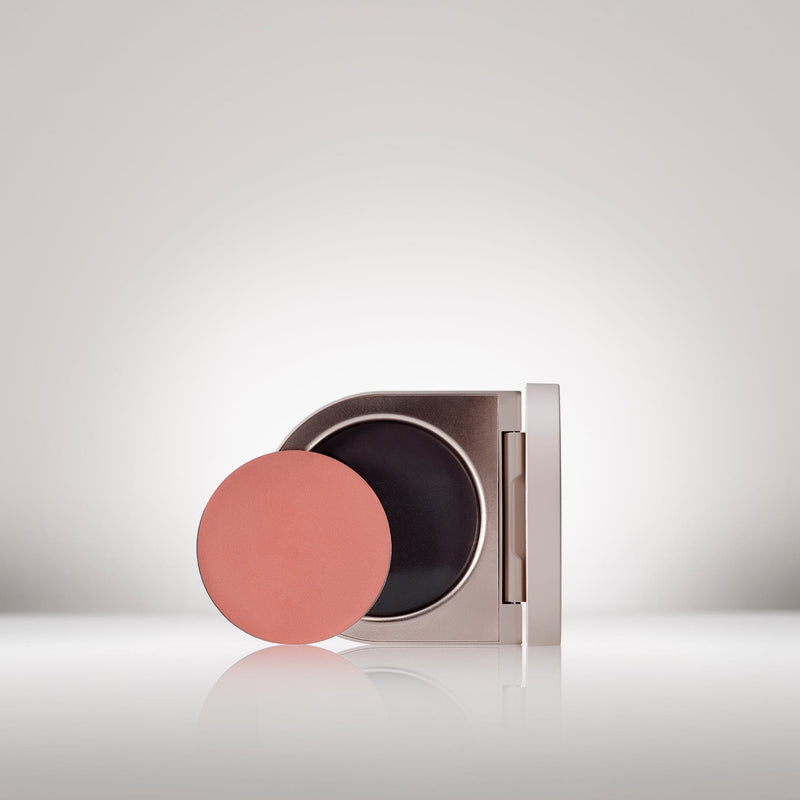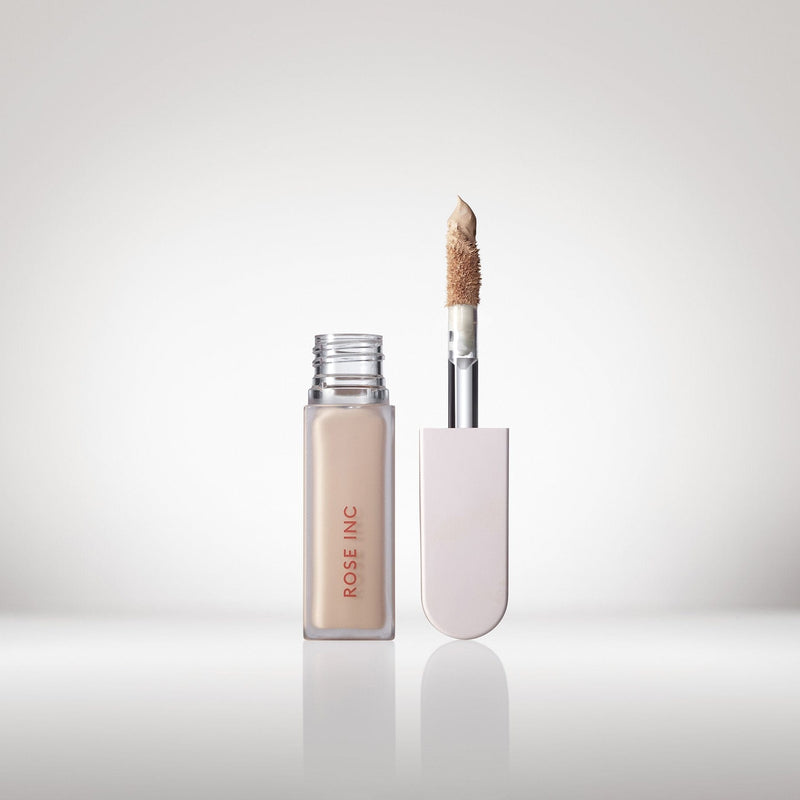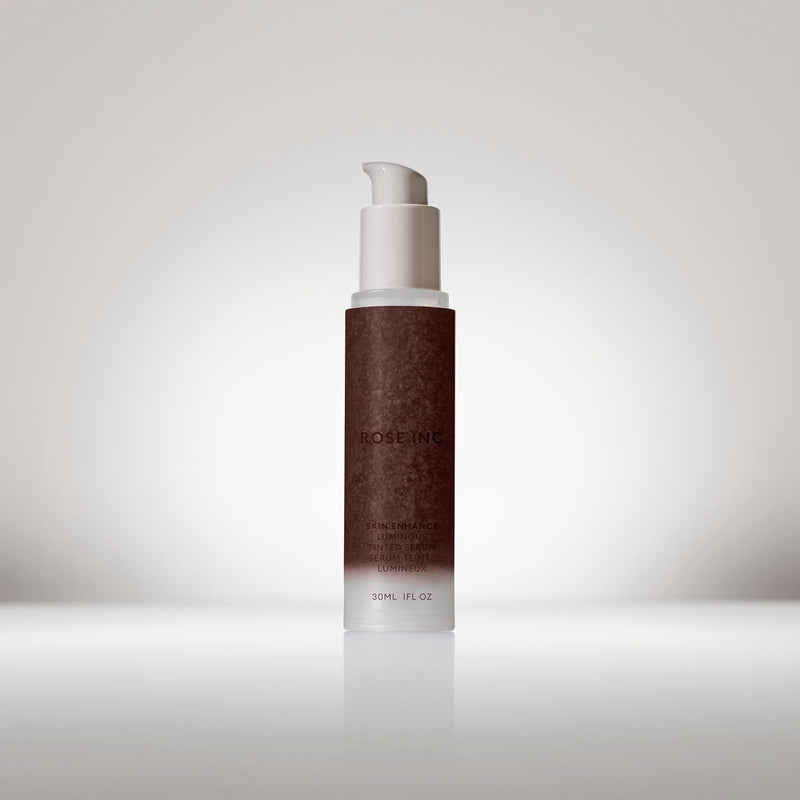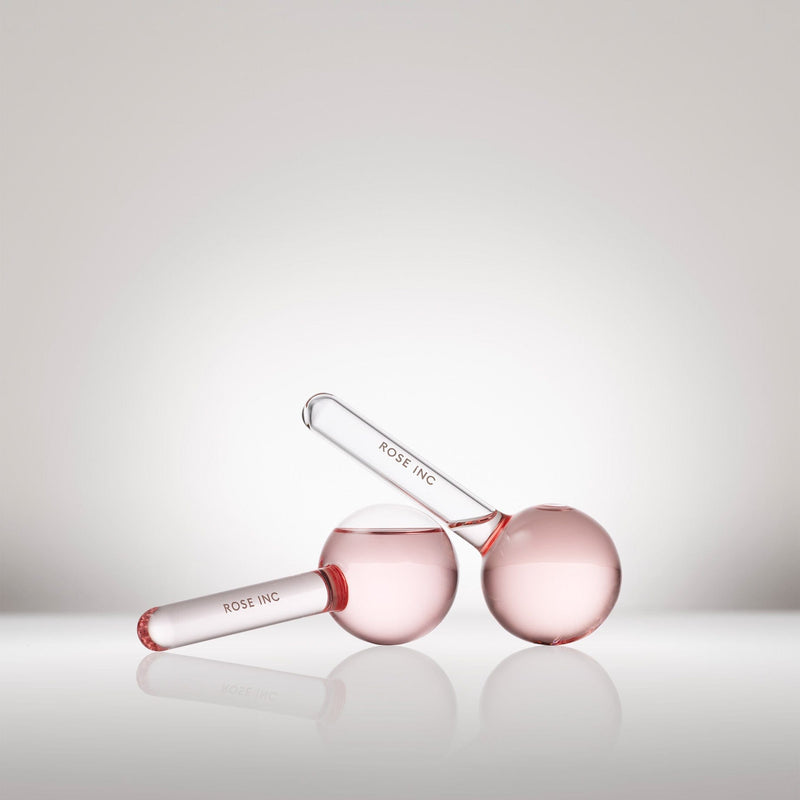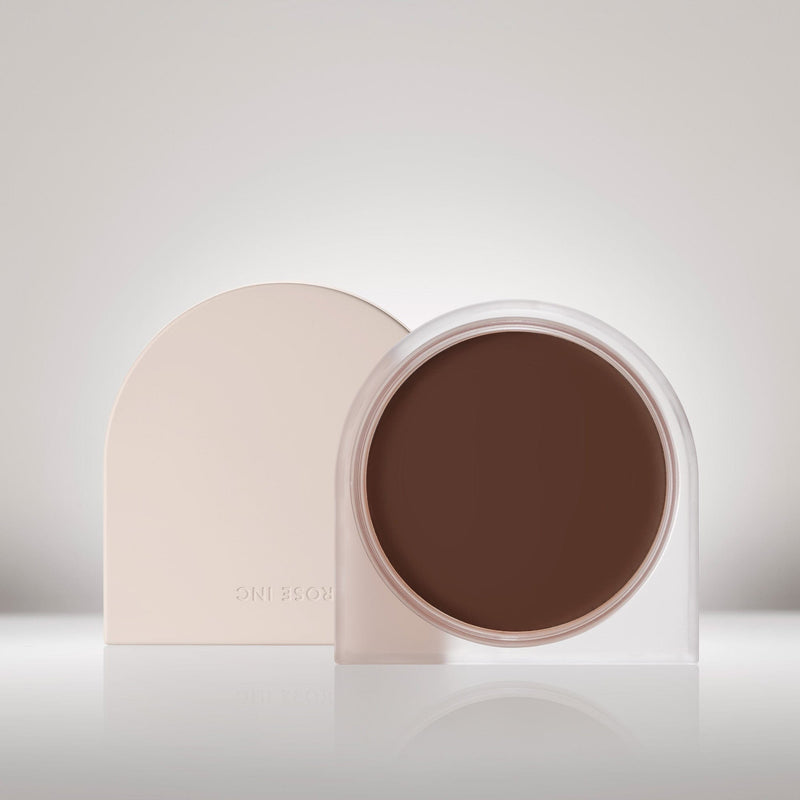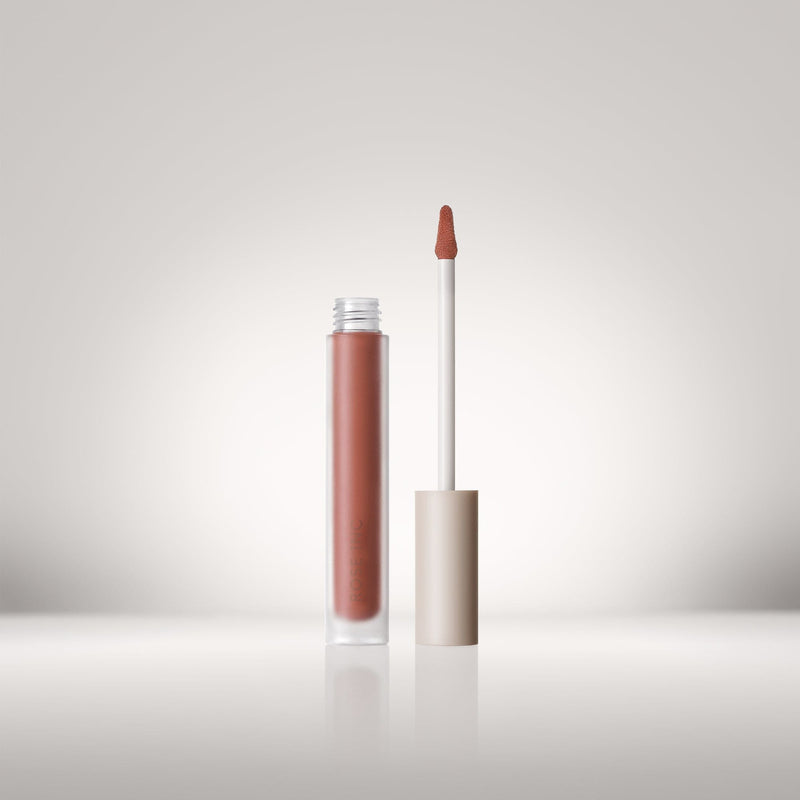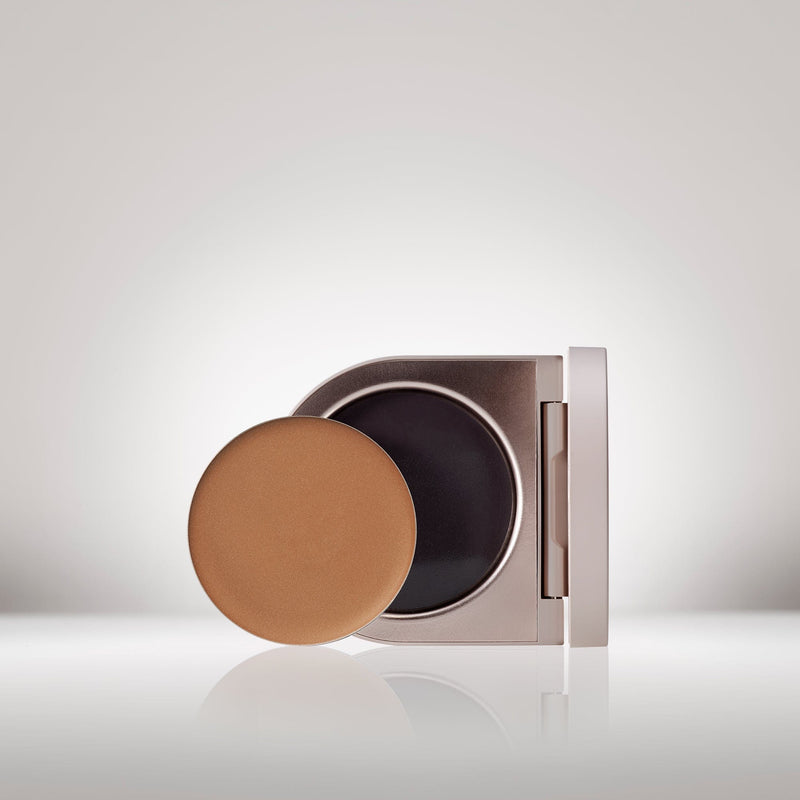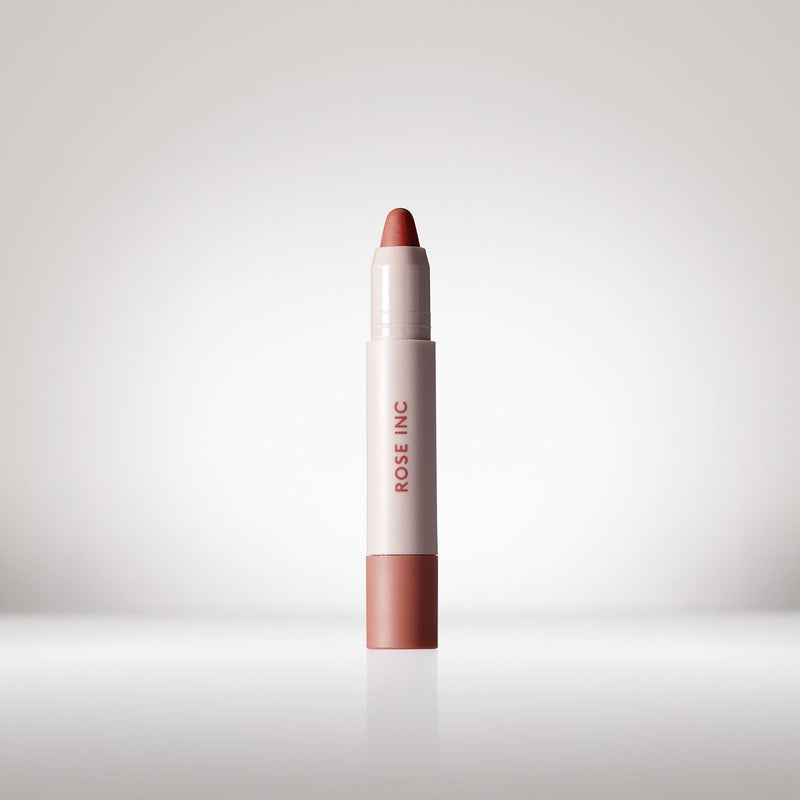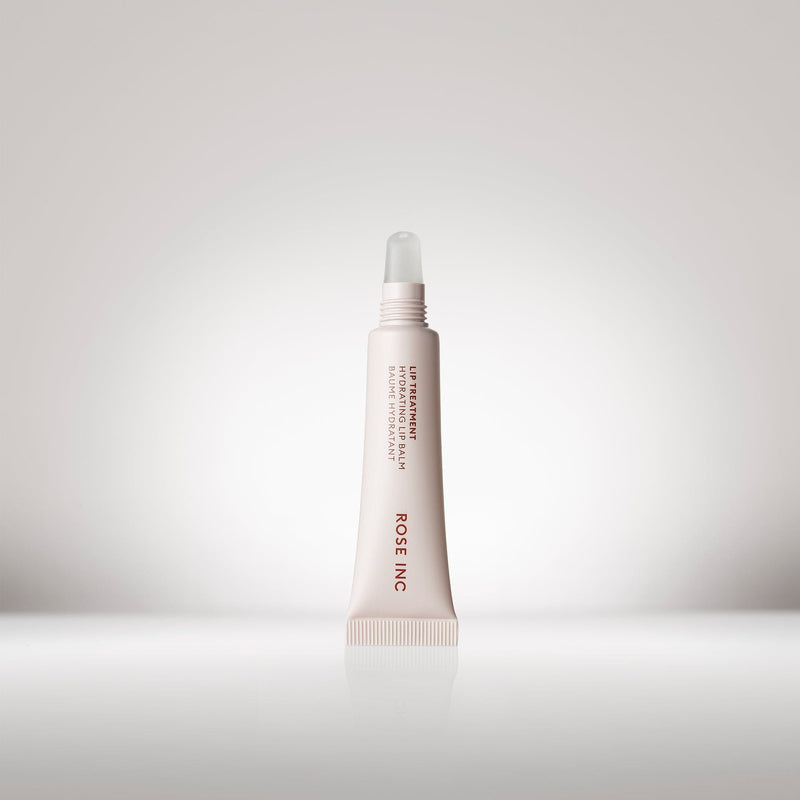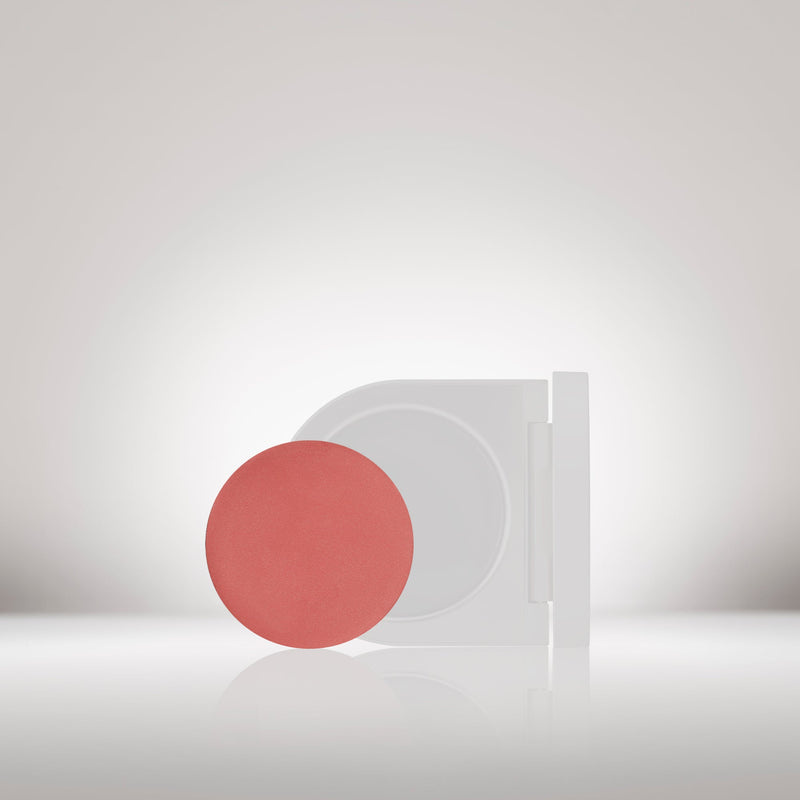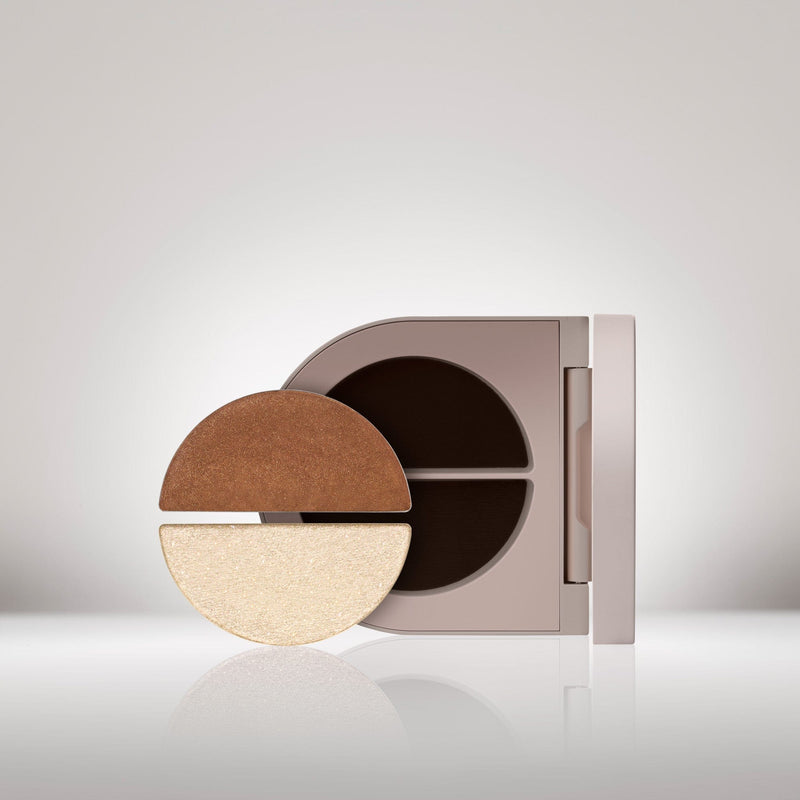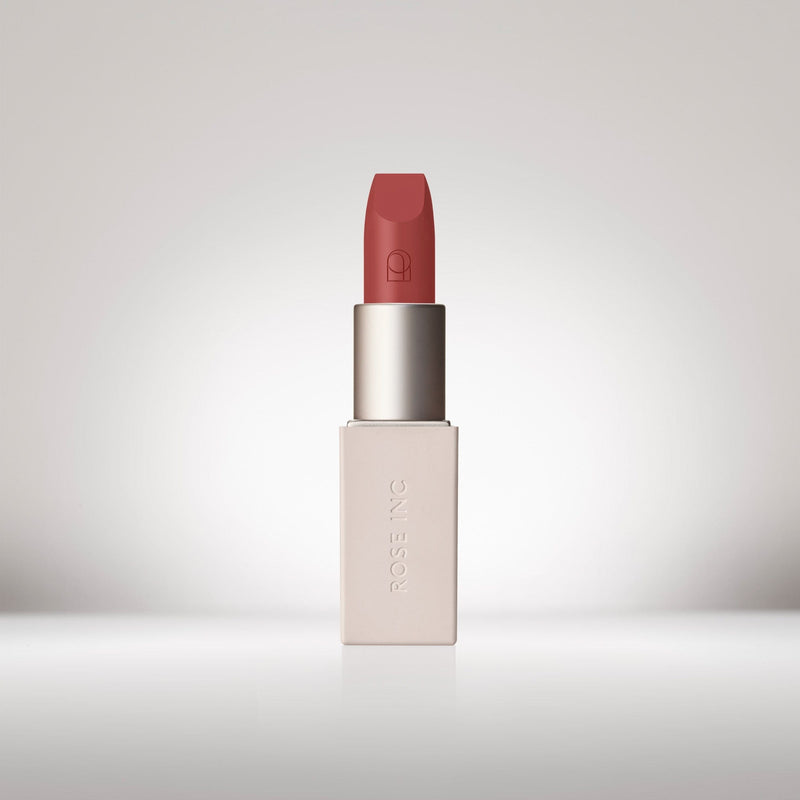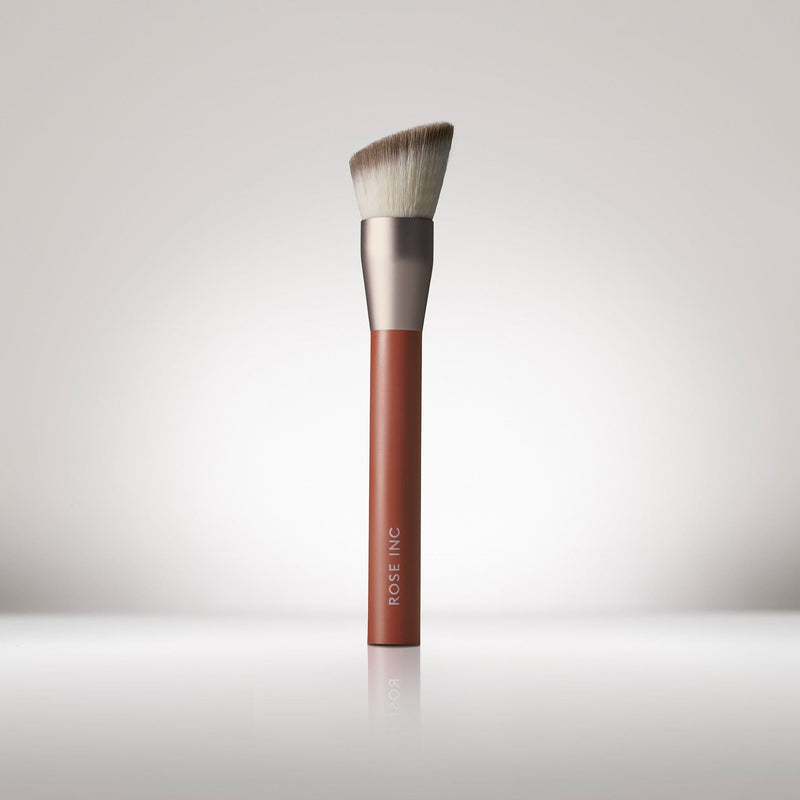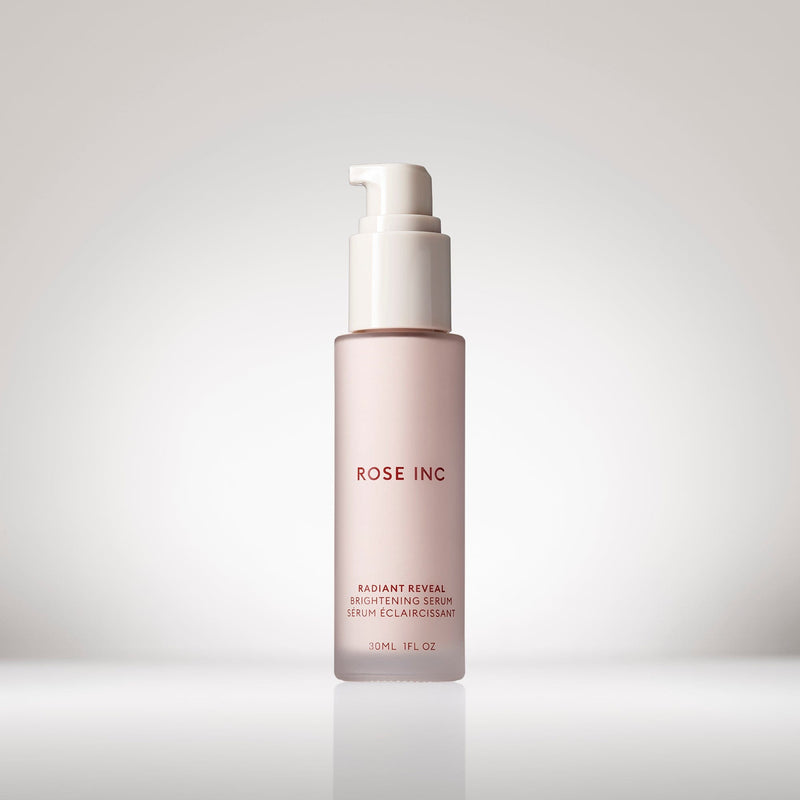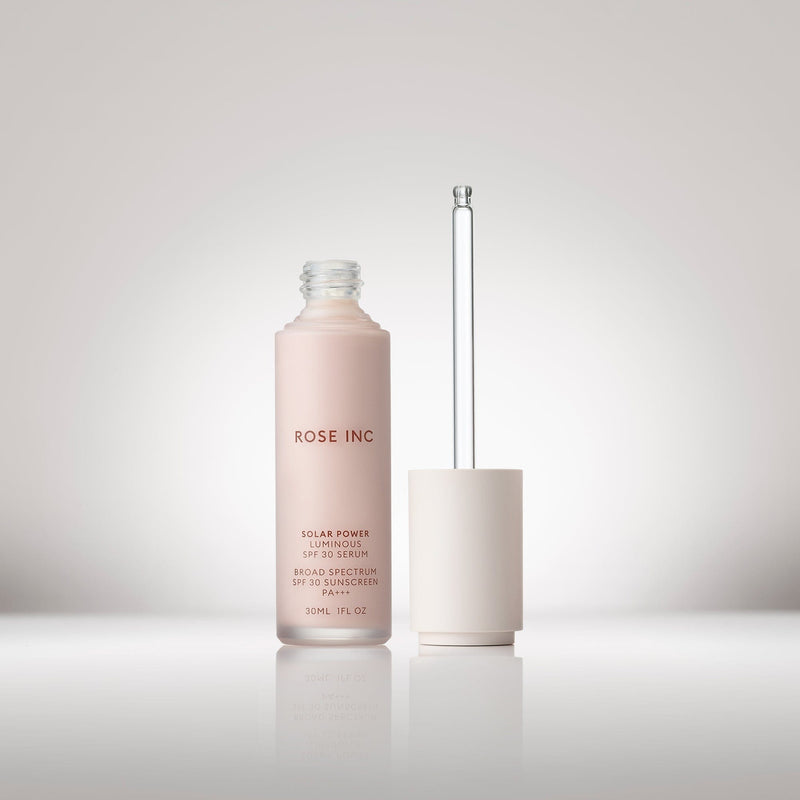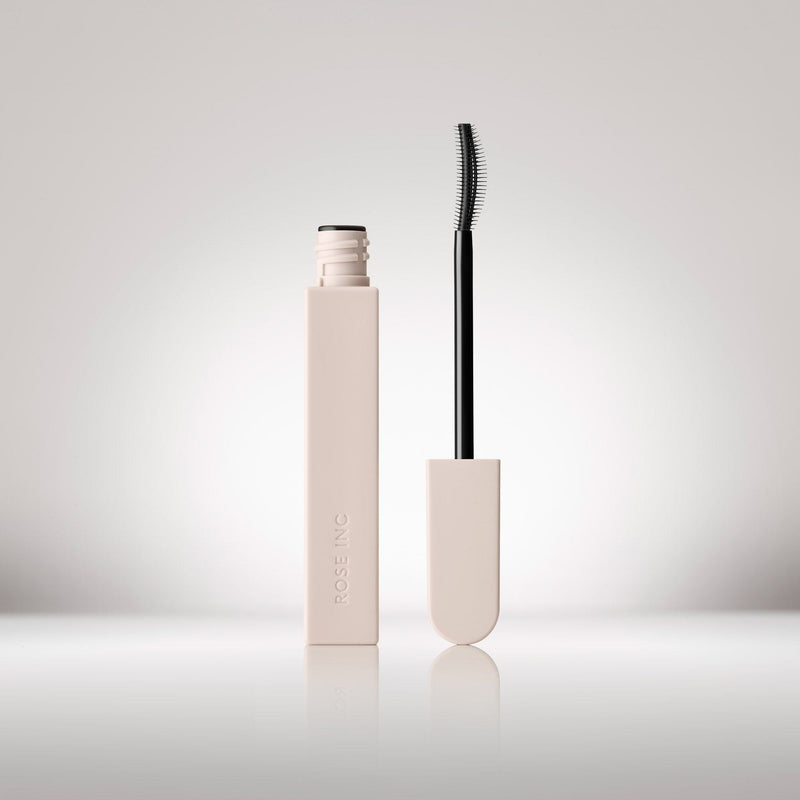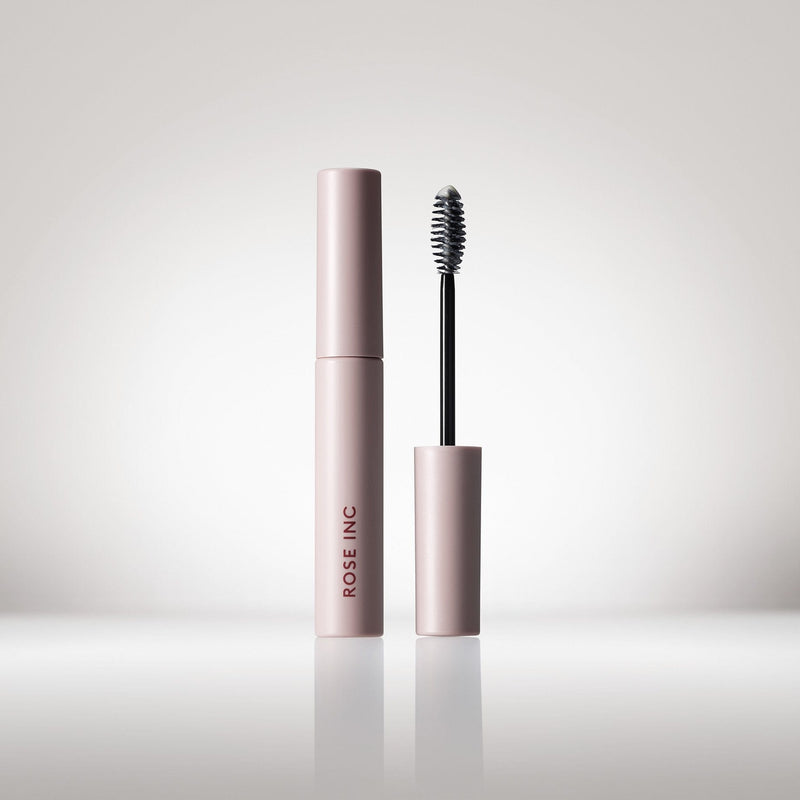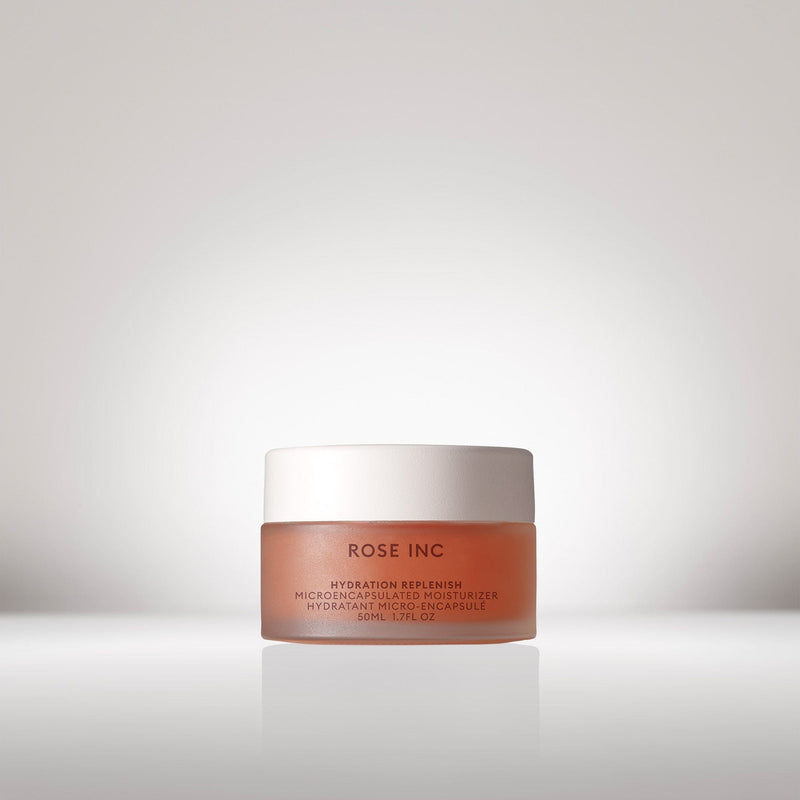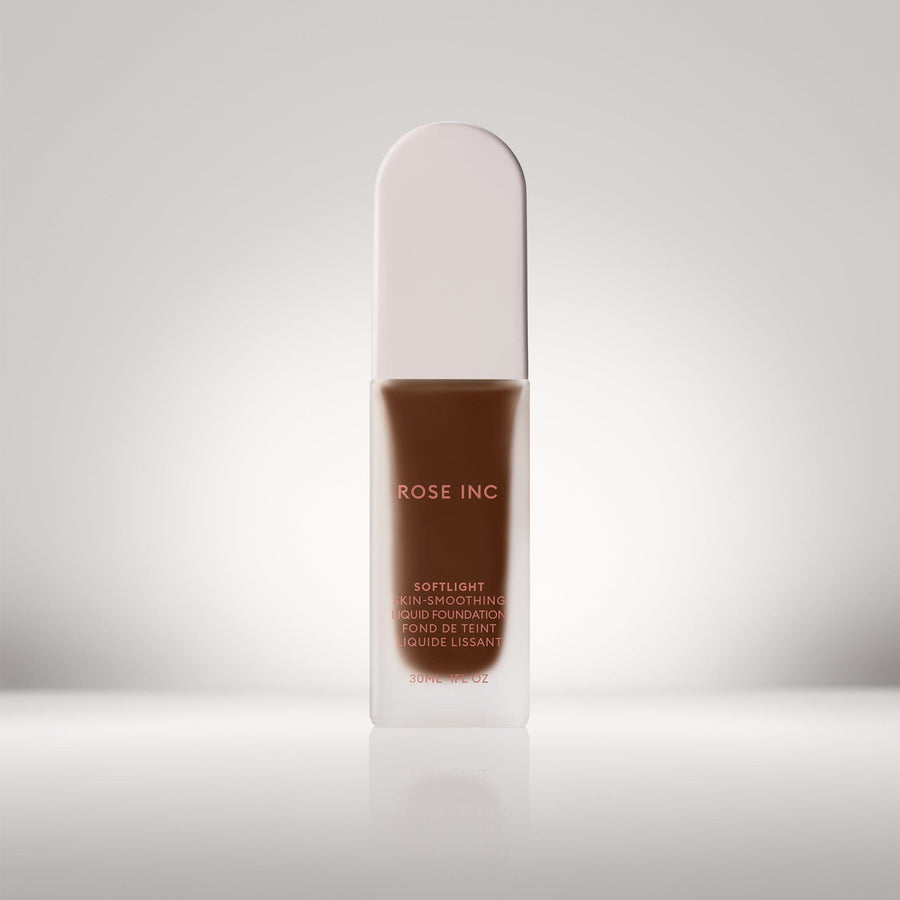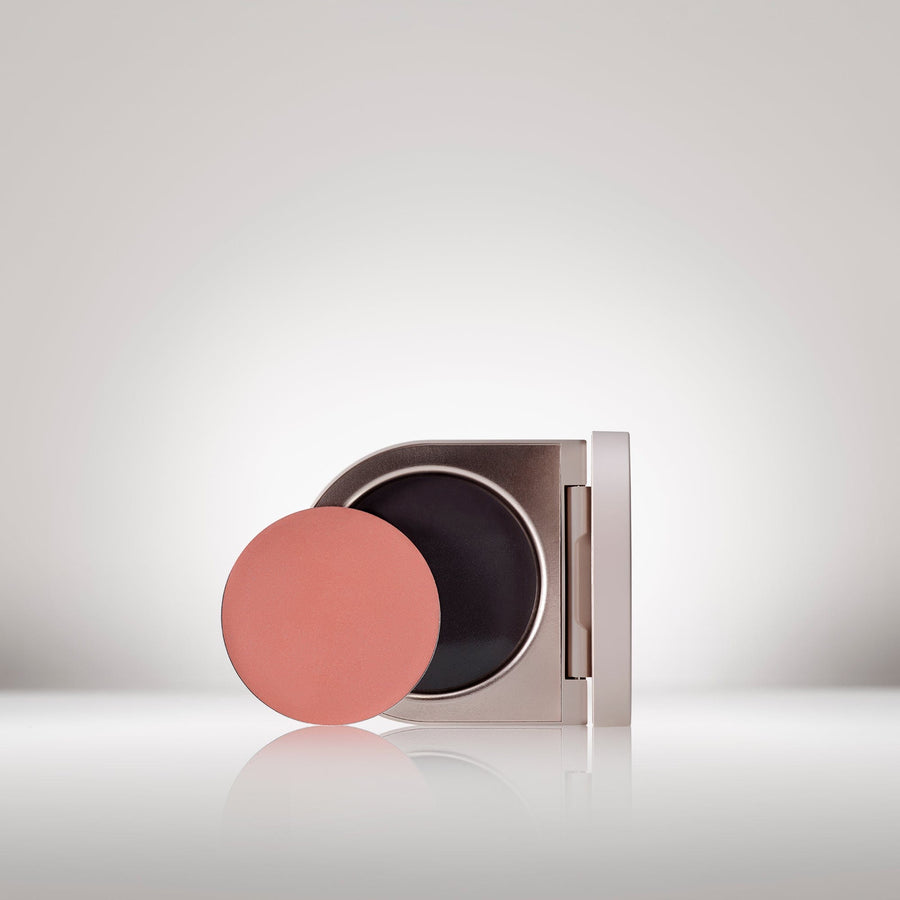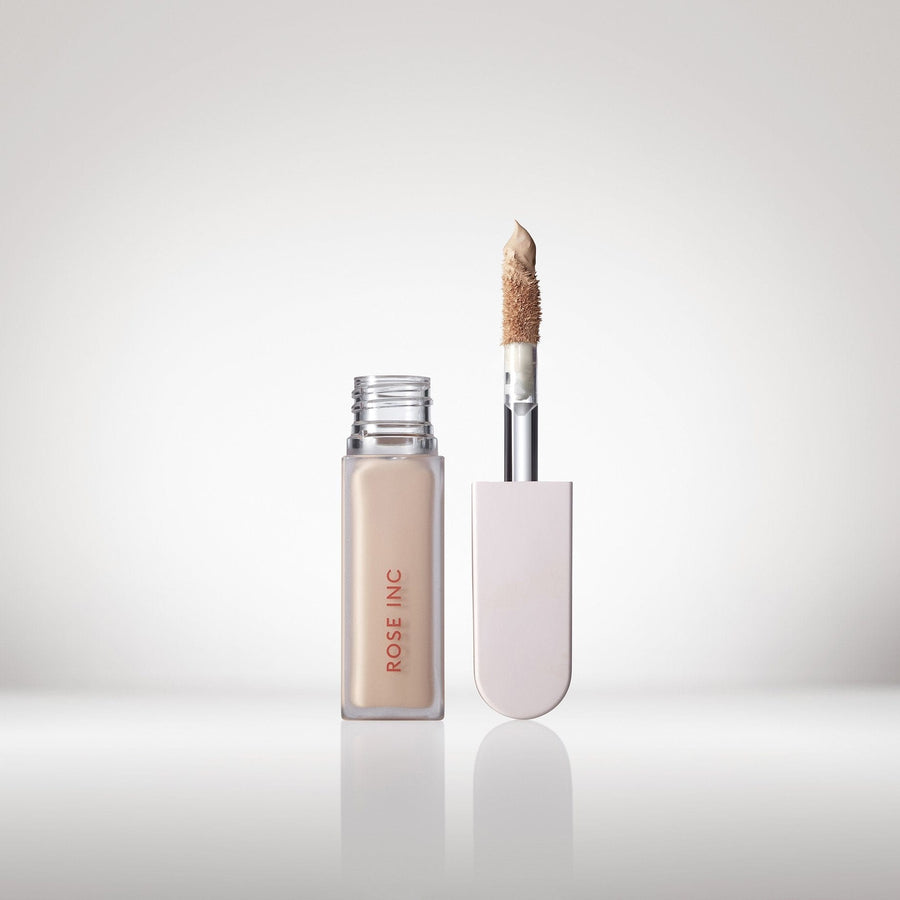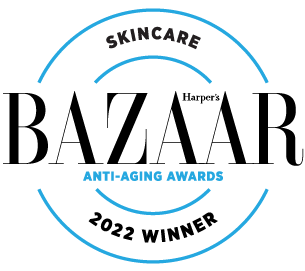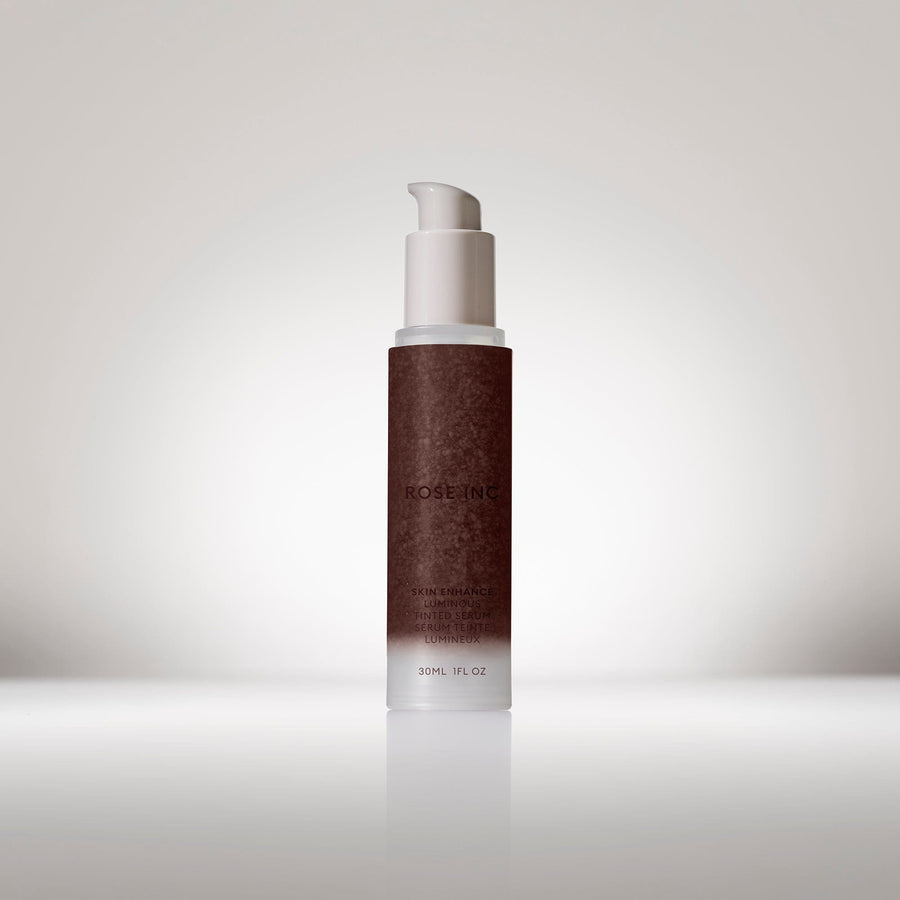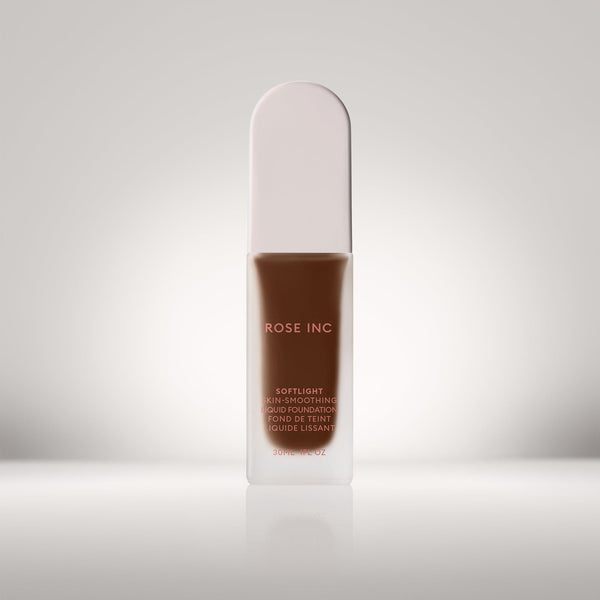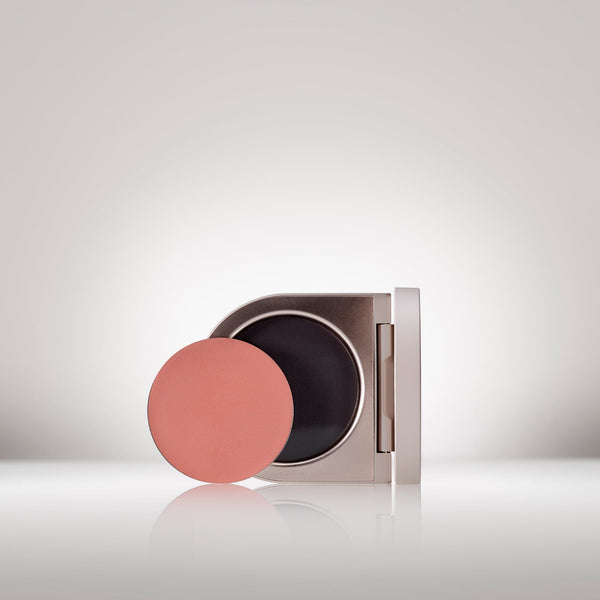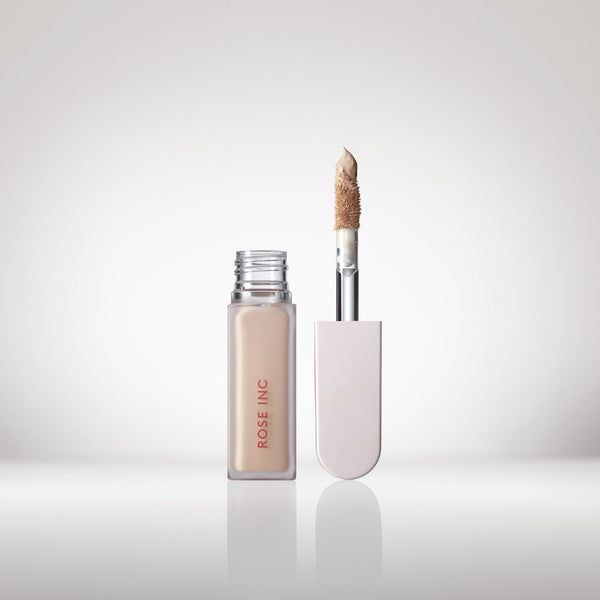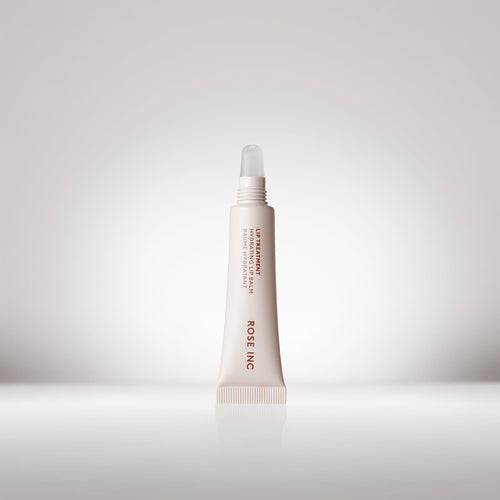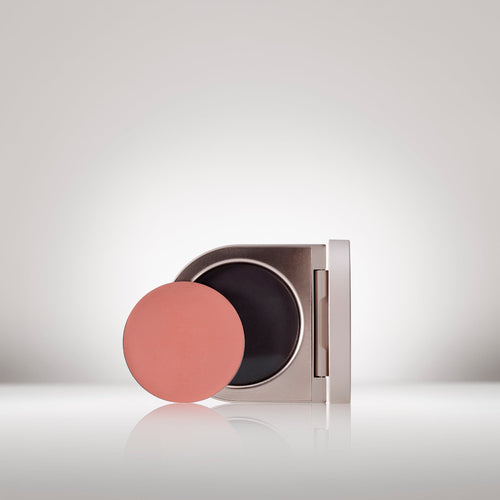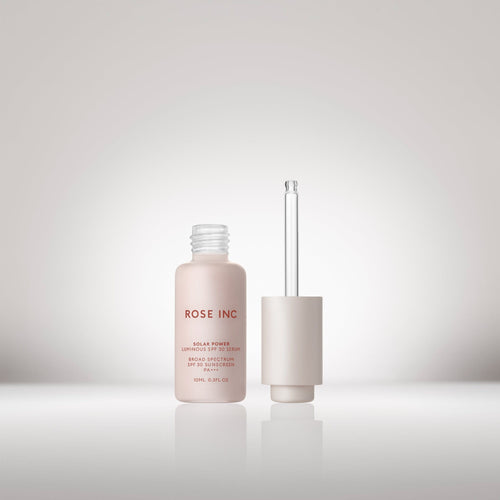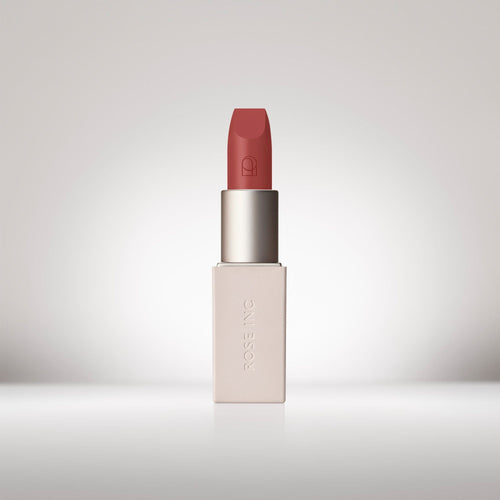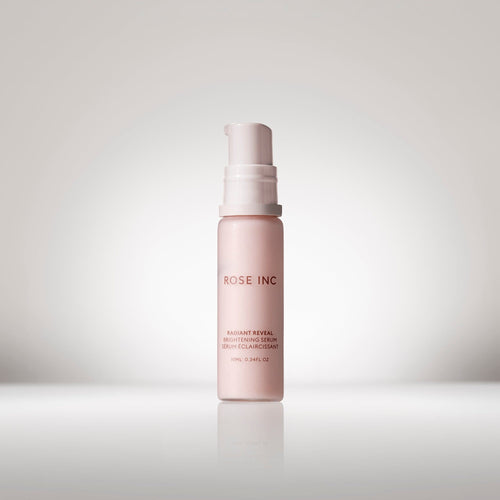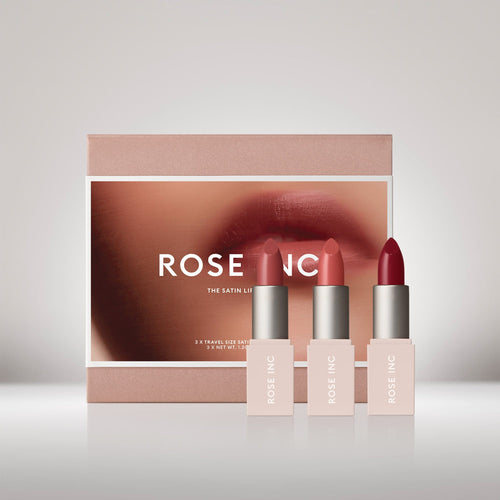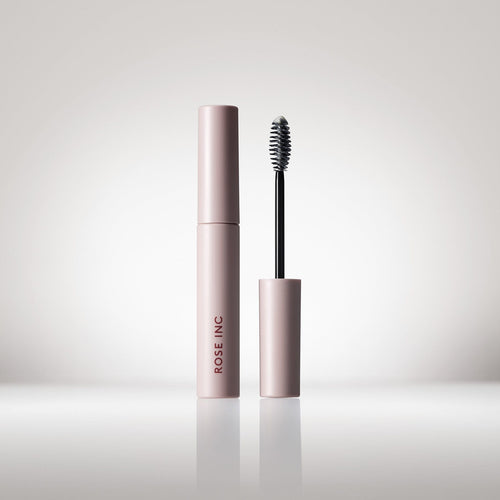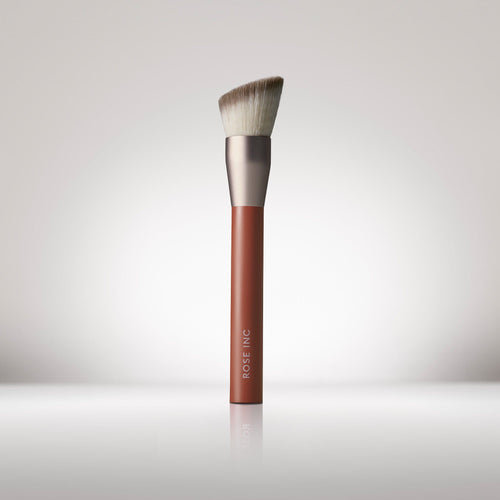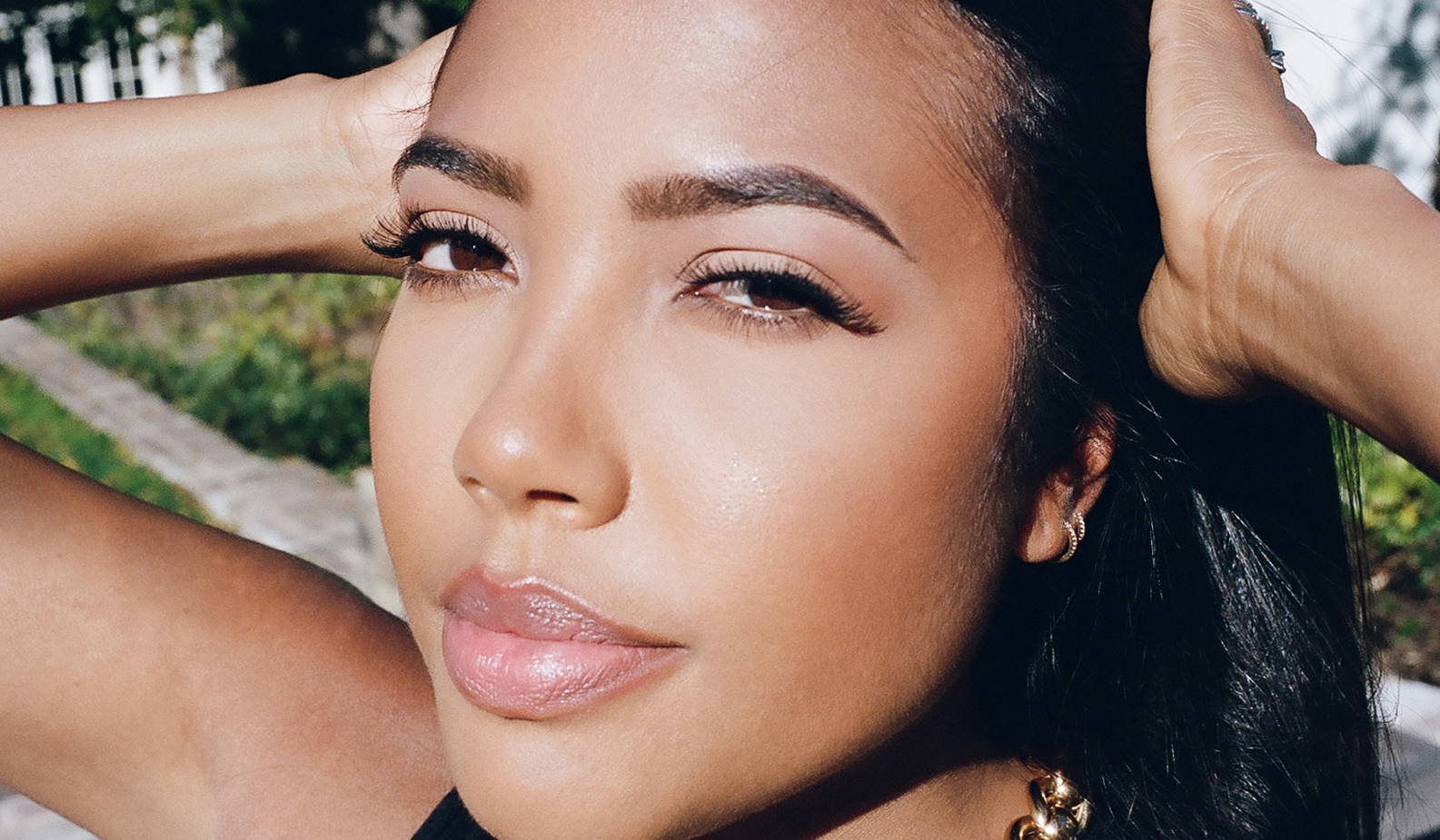
The Go-See: Emma Grede
Radical inclusivity is the mood of the moment, and Emma Grede is among the leaders changing the cultural conversation. The co-founder of Good American is passionate about making fashion accessible to every woman, whether she wears a size 00, a size 24, or sizes in between. Together with co-founder Khloe Kardashian, she’s expanded the clothing line from its initial offering of denim (which, by the way, sold $1 million on its first day) to activewear, dresses, and professional-but-not-stodgy clothing made with a focus on fit. Here, Rose Inc. catches up with Grede to talk ambition, diversity, and the enduring power of a three-step skin-care routine.
What makes you passionate about not just making clothes in a wide range of sizes, but also showing them on a diverse range of people?
I had a very clear idea when I started Good American: I wanted to create a company that had purpose. I thought really long and hard about what that actually means. Good American was built on the premise that if women are going to do the great things that we really need in the world right now, then being confident becomes intrinsic and important. For me, I always found my confidence through fashion—being able to throw on an amazing fit and feeling really great. It became so apparent to me that the large majority of women were shut out of the fashion conversation. I'm not talking about high fashion; I'm just talking about regular fashion, like a nice pair of jeans and a good-fitting jacket.
It seemed absurd to me that as we’re talking about female empowerment and the feminist values becoming very prominent in our lives again, women weren’t getting access to fashion and being able to feel a certain way. To me, it was ludicrous. So I got this idea in my head, and thought, “We’re just going to do everything differently.”
Then I started doing it and thought, “Oh, this is really hard!” (Laughs.) An e-commerce shoot should not take two weeks! But actually, it was wonderful because people notice. If you shoot your denim on 15 different-sized women, it’s costly and it takes a long time, but it’s the first thing people talk to me about. And it’s a no-brainer! If you’re a size 2, you don’t want to see denim shot on a size 10, and if you’re a size 16, seeing it on a size 0 makes no sense. It's actually a very good commercial decision as well. Women are way more likely to convert as customers when they see clothes on their size. I think all brands should strive toward this. We shouldn’t really be forced to look at fashion with a very narrow lens, on one type of body.
Do you think that that's changing within the industry at large?
I like to think it is. I think the conversation is happening. We're starting to have awareness, and that leads to great stuff. But the reality is, the vast majority of fashion brands aren't making clothes for regular women. That's just sad. Comparatively, if a beauty brand launches with seven shades of foundation nowadays… well, you have to have 40 just to be in the conversation. But in fashion, it's still “fine” to offer five, six, or seven sizes of clothes and ignore the majority.
Call-out culture is boring to me.
Some of that has to do with the complexity of designing garments for different sizes, right? It’s not like you can just scale a pattern up or down and have it fit different body types well.
Right. There’s no such thing as sizing up; you need to create a completely new pattern. That’s been a huge learning curve because Good American is about to expand our sizes even further, both up and down the size spectrum. What ends up happening is that you have multiple patterns for single SKU of clothing. Then it becomes about finding the resources and talent to do it. It’s hard to find the right people to come on the journey with you—technical designers and pattern makers—because there aren’t a lot of people operating in the plus-size space. It’s tough.
Well, you make it look easy from the outside. You grew up working-class in East London, you started your first company at the age of 24, and now you run Good American. Where did your work ethic and entrepreneurial drive come from?
I think that my upbringing and where I was born has a lot to do with that drive. You know, I've worked my entire life. I had a paper route when I was 12 and I haven't stopped working since then. I loved having that first 20 pounds in my hand. I’d do my paper route, get the 20 pounds, and inevitably go to The Body Shop and buy a Dewberry lip balm or something like that.
I have to credit my mum for my drive. Even though I grew up in a pretty grim place and we didn't have much, I was raised with so much confidence. I believed that whatever I wanted to do, I could do it. That comes from having a family that really supported my ideas. With my money, I’d buy fashion magazines and look at the supermodels in Versace and Chanel. I really believed that I could be part of that world if I just worked hard enough.
I had no lack of confidence! I had a complete inability to see that my life and that world weren't that close. Which was a total blessing because I actually think my naiveté was what led me to start a business at 24. I was like, “I'm smart, I'm relatively charming, and I'm really nice to people. So it will work out in the end.” I still believe that to this day.
Do you typically trust your gut?
Yes. First of all, I am a very gut-instinct person and I'm ruthless in my decision making. I think when you become a parent, you become even more ruthless. I’m very clear about my goals. I also prioritize myself and my goals and my ambition, so I get a lot of stuff done. I say no to the things that aren't getting me closer to one of those goals, and that's really how I make decisions. But I definitely made a lot of mistakes in the past and wasted a lot of energy because I didn't have as much confidence. That's something that definitely comes with time; you become more and more aware of your gut instinct.
One of the best pieces of advice I ever had came from my husband. He said to me, “Emma, you have to make a decision and move on.” I find that good advice because over the course of a day, all I do is make decisions. Some of them are big, and some of them have a lot of impact, so you can't procrastinate. You’ve got to just get on with things.
You have so many roles in your life. You're your own person, a mother, a wife, you’re running a company. What do you think of this cultural ideal of the “woman who does it all”? Is it really possible to be Superwoman?
No, no, no! I don't believe in having it all, all the time. You don’t have an amazing career and make everything at school and go home and be the most fabulous wife and be vegan and reduce plastic. It just doesn’t happen like that. I try to be a bit easy on myself. I don’t expect it all to work out all the time, and I think that’s okay. Something has to give.
If I look at the last couple of years, I have a limited amount of girlfriends who I don’t see that often. My social life became small because I was busy being a mom and starting a new company. So I like to take pressure off of women because it feels unfair, and I don’t think men experience it in the same way. I think that we have to just be okay with not everything being fabulous. I don’t have an amazing outfit on every day, because I don't have the time to think about it. And when I do, I'm like, “Ooh, amazing outfit!” It’s just the reality of my life, because it takes me a while to think about those things, and I don’t always have the time—so that goes out the door because I’d rather take my kids to school. I feel that we have to be realistic and a bit more gentle on ourselves.
I don't believe in having it all, all the time.
I like that. How does beauty fit into your busy life?
To me, it's one of the most pleasurable things. I love the word self-care; it's such an indulgent, lovely term. I do think that's really important. I love beauty and I love products. My daughter, who’s only three, asked me to go to Sephora yesterday. I think it might have been my favorite thing she’s ever said to me.
What is your skin-care ritual?
I travel a lot, so a lot of my rituals are around what I do on a plane. I grew up in that era of the three-step routine, so for me, it's always about cleansing, exfoliating, and moisturizing. I love all the oils and serums that I can get my hands on. Slathering those on when I’m on a plane is my favorite thing to do.
Let’s do some quick questions. What will you never apologize for?
Being myself.
What gets you out of bed in the morning?
The ability to make change every day. I love that I have a job where I can do something different to what everyone else is doing.
What keeps you in bed in the morning?
Nothing! I live in LA, so I don’t have the option. When the sun is shining, I bounce out of bed.
What are you reading right now?
I’m reading an amazing book called The Second Mountain by David Brooks. I’m literally going around telling everybody that they need to read this book. It's magical.
What are you watching right now?
The Morning Show.
What are you listening to?
Non-stop Post Malone and Kanye West’s Sunday Service album. That gospel music takes me back to my East London roots.
Whose opinion do you value?
Does it sound ridiculous to say my own? I value my husband's opinion a lot.
I’d hope so! Whose do you ignore?
Any kind of hate-y opinion. Any of those horrible sites that are just there to spread shade and hate. Call-out culture is boring to me. I’m like, come on, guys, there’s real shit happening in the world. Shouldn’t we focus our energies and things that matter? There are so many important things to be worried about right now. The earth is dying! We all need to have a complete readjustment and think about life entirely differently.
With you. When do you feel desirable?
When I'm fresh out the shower.
You’re an ambitious woman. Can you share one of your goals?
I’m working on being more environmentally aware in my life, my work, and my house. I’ve been vegan for the month of January. I took that on not to become vegan, but to show myself how to eat less meat in general. As we're coming to the end of January, I’ve decided that every month, I'm going to take on a new challenge to figure out how to reduce my footprint overall. For 18 months, we've been working on [sustainability] in the company, but I need to do that in my house and with my kids. Every part counts.
Emma Grede photographed at home in Los Angeles by Ford. Interview conducted and edited by Annie Tomlin.



